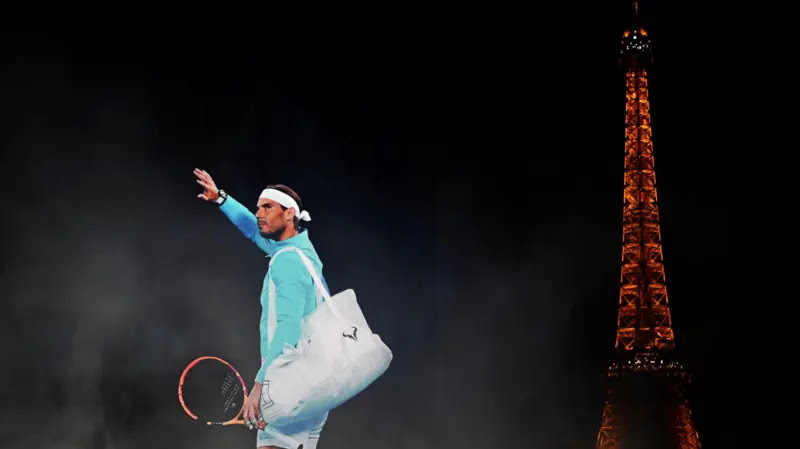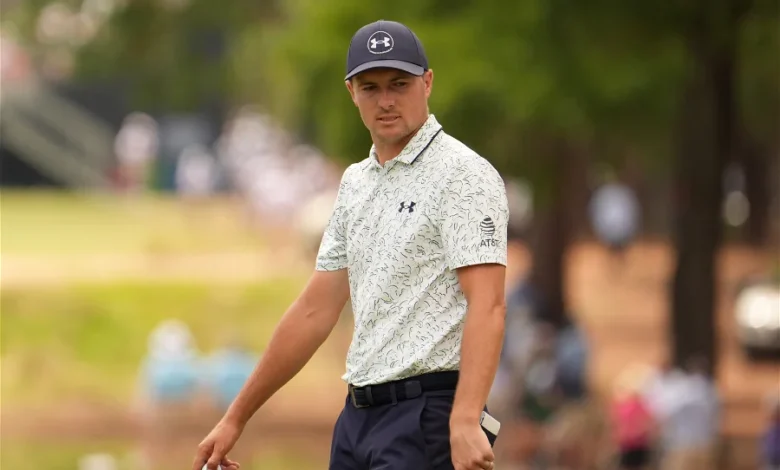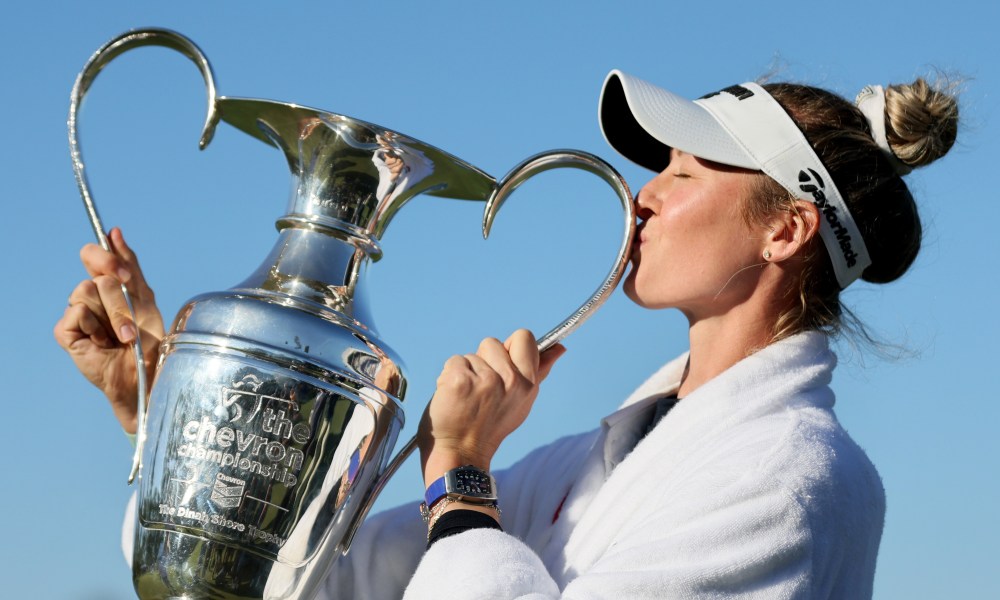A simple message, which evokes a multitude of memories for almost an entire nation, neatly summed up what Nadal means to Spain.
“Gracias is the first word which comes to mind when you reflect on everything we have witnessed over the past 20 years, watching Rafa play,” Feliciano Lopez, Nadal’s former Davis Cup team-mate and a close friend for more than 20 years, told BBC Sport.
“We can only be thankful to him, to experience and live what he has achieved.
“Nobody in Spain could have ever imagined before him that we would have someone who could achieve so much on a tennis court.”
The achievements have to be seen in writing to be believed: 22 Grand Slam titles, 92 ATP Tour titles, two Olympic gold medals, four Davis Cup final triumphs, 209 weeks as world number one, 912 consecutive weeks in the top 10.
No wonder the fans flocked to Malaga on Tuesday – at varying costs – for what proved to the final match of his career after he lost in Spain’s defeat by the Netherlands in the Davis Cup quarter-finals.
They cheered. They cried. They even celebrated missed first serves by the Dutch in a football-style atmosphere.
When tickets went on sale for the tie, well before Nadal announced his farewell plans, they were being picked up for €55 (£45).
On Tuesday morning €25,000 (£21,000) was needed to secure one from a resale website.
Fans arrived early and patiently waited in long queues which snaked around the Jose Maria Martin Carpena Arena
Spanish red and yellow was ubiquitous in the form of Nadal t-shirts, Zorro-style cordobes hats and football scarves.
Inside the 11,500-capacity stadium, plenty held aloft cardboard signs – colourful and creative DIY jobs – with personal messages.
Like on the gigantic banner outside, the LED screens flashed ‘Gracias Rafa’ during his emotional farewell speech. Gratitude and grief intertwined.
Lopez believes the message summed up the mood of the nation – and beyond.
“His contribution to the whole country has been massive. But not only his titles and everything he has achieved as a human being,” he said.
“I think ‘Gracias Rafa’ is something that every tennis fan in the world is thinking right now.”
The range of Nadal’s appeal is broad and it was striking to see how mixed the Malaga crowd was. Young and old, female and male, groups and individuals.
Nadal strikes a chord with the person on the street. He also has the King of Spain on speed dial.
Some local people in Malaga this week have discussed their disappointment about his lucrative ambassadorial role with Saudi Arabia – whose human rights record has been criticised – but the majority speak glowingly.
“Nadal means everything. Not only because he is one of the best players but because of how he is as a person,” said Javier Ibañez, who had travelled 250 miles from Murcia for the occasion with his friend Pedro Ayala.
“He has good values which we cherish. It is respect for his rivals, his humbleness, but most of all his fighting spirit.
“He inspires others to fight in every problem they have in their whole life, not only in tennis.”
Showing a humbleness which motivates others was illustrated off court when, in 2018, he led from the front to help his home island of Mallorca recover from devastating flash flooding.
Pushing away the slurry water with a bristled brush became a defining image.
It also showed the love which proud homebird Nadal retains for his roots. Despite travelling to every corner of the globe to play the sport he adores, he has never permanently left his hometown of Manacor.
But the talent honed by the tough-love tutelage of his uncle Toni, who guided Nadal from a toddler to his 16th major title in 2017, was too great not to be appreciated further afield.



